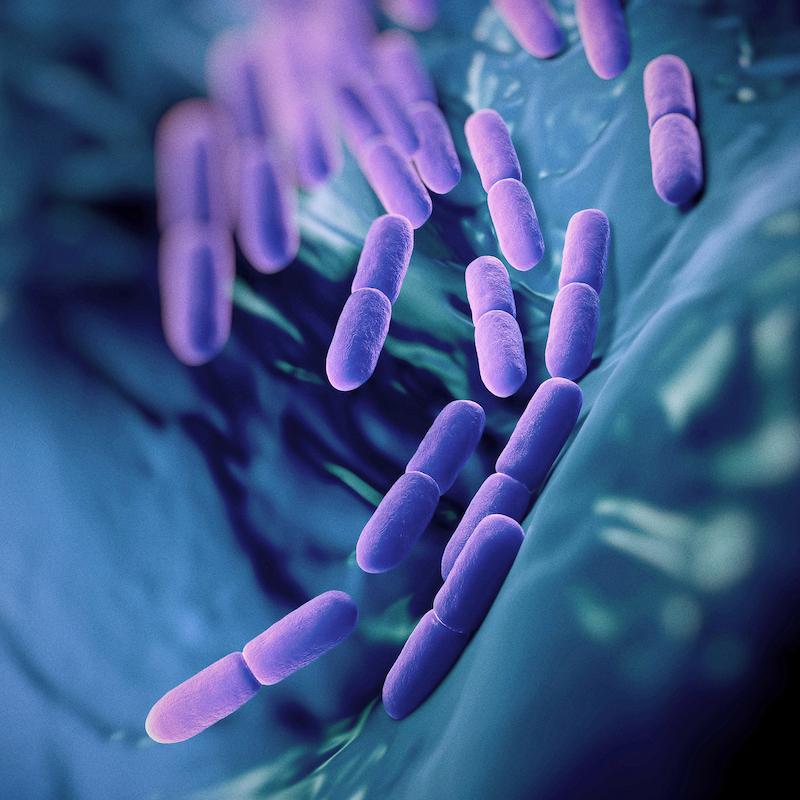As the popularity of probiotics continues to surge beyond gut health, athletes and fitness enthusiasts are increasingly turning to these supplements in the hope of enhancing performance and recovery. But do probiotics truly offer a competitive edge, or is their reputation ahead of the science? A recent comprehensive review published on News-Medical examines the current evidence surrounding probiotics and athletic performance, revealing which claims are backed by research-and which remain speculative. This article delves into the findings to separate fact from fiction in the quest for peak physical achievement.
Probiotics and Athletic Performance Exploring the Science Behind the Claims
Recent research has shed light on the complex relationship between probiotics and athletic performance, revealing that while some strains of probiotics may enhance recovery and reduce gastrointestinal distress, claims of significant boosts in strength or endurance remain largely unsubstantiated. Probiotics specifically targeting gut health appear to play a role in modulating inflammation and supporting immune function, both crucial factors for athletes undergoing intense training. However, the effects vary widely depending on the bacterial strain, dosage, and individual microbiome diversity.
Key findings include:
- Reduction in upper respiratory tract infections during heavy training phases
- Improved nutrient absorption linked to certain Lactobacillus strains
- Potential enhancement in recovery times through decreased muscle soreness
| Probiotic Strain | Potential Benefit | Evidence Level |
|---|---|---|
| Lactobacillus casei | Immunity boost, reduced infections | Moderate |
| Bifidobacterium longum | Inflammation control | Low to Moderate |
| Saccharomyces boulardii | Gut barrier support | Emerging |
Despite promising findings, experts caution that the current data does not support broad claims for probiotics as a universal enhancer of athletic capacity. More targeted, high-quality clinical trials are needed to delineate which probiotic formulations might reliably contribute to performance metrics, particularly in elite athletes. For now, athletes and coaches should approach probiotics as a supportive tool within a comprehensive training and nutrition strategy, rather than a standalone performance enhancer.
Key Strains That Show Promise for Enhancing Endurance and Recovery
Emerging research highlights several probiotic strains that could play pivotal roles in boosting athletic endurance and speeding recovery times. Among the frontrunners, Lactobacillus plantarum has gained attention for its potential to reduce muscle fatigue and enhance oxygen efficiency during prolonged physical activity. Similarly, Bifidobacterium longum shows promise in modulating inflammation, which is crucial for faster recovery after intense exercise. These strains work at the gut level to optimize nutrient absorption and regulate immune responses, thereby offering athletes a natural edge without performance-enhancing drugs.
Other notable strains that have entered the spotlight include Lactobacillus acidophilus and Streptococcus thermophilus, both documented to support gut barrier integrity and reduce gastrointestinal distress during endurance events. While the data are compelling, experts caution that individualized responses can vary significantly. Below is a summary table of key strains with their proposed benefits and current evidence status, providing a clearer snapshot for athletes and coaches exploring probiotic supplementation.
| Probiotic Strain | Benefit | Evidence Level |
|---|---|---|
| Lactobacillus plantarum | Reduces muscle fatigue, improves oxygen use | Moderate |
| Bifidobacterium longum | Anti-inflammatory, enhances recovery | Emerging |
| Lactobacillus acidophilus | Supports gut barrier, reduces GI distress | Preliminary |
| Streptococcus thermophilus | Improves digestion, reduces inflammation | Preliminary |
Expert Recommendations for Integrating Probiotics into Training Regimens
Leading sports nutritionists emphasize that while probiotics hold promise in supporting athletes’ gut health, their integration into training must be strategic. Experts recommend starting with well-researched probiotic strains such as Lactobacillus acidophilus and Bifidobacterium bifidum, known for their potential to reduce gastrointestinal distress during intense exercise. Consistency is key; athletes should incorporate probiotics daily over several weeks to allow the microbiome to adapt. Additionally, pairing probiotics with a balanced diet rich in prebiotics-fibers that feed beneficial bacteria-can amplify their effectiveness.
Performance trainers also advise close monitoring of individual responses, as probiotic effects may vary based on genetic and environmental factors. To optimize results, timing supplementation around training phases can be beneficial. For example, probiotic intake during recovery phases might enhance immune resilience post-exercise. The following table summarizes expert-backed best practices:
| Recommendation | Rationale | ||||||||||||||||||||
|---|---|---|---|---|---|---|---|---|---|---|---|---|---|---|---|---|---|---|---|---|---|
| Select clinically studied strains | Maximizes evidence-based benefits | ||||||||||||||||||||
| Maintain consistent daily intake | Supports microbiome adaptation | ||||||||||||||||||||
| Combine with prebiotic-rich foods | Enhances probiotic survival and activity | ||||||||||||||||||||
| Monitor individual tolerance and effects | Tailors approach for optimal outcomes | ||||||||||||||||||||
| Time intake around recovery |
Leading sports nutritionists emphasize that while probiotics hold promise in supporting athletes’ gut health, their integration into training must be strategic. Experts recommend starting with well-researched probiotic strains such as Lactobacillus acidophilus and Bifidobacterium bifidum, known for their potential to reduce gastrointestinal distress during intense exercise. Consistency is key; athletes should incorporate probiotics daily over several weeks to allow the microbiome to adapt. Additionally, pairing probiotics with a balanced diet rich in prebiotics-fibers that feed beneficial bacteria-can amplify their effectiveness. Performance trainers also advise close monitoring of individual responses, as probiotic effects may vary based on genetic and environmental factors. To optimize results, timing supplementation around training phases can be beneficial. For example, probiotic intake during recovery phases might enhance immune resilience post-exercise. The following table summarizes expert-backed best practices:
In SummaryAs interest in probiotics continues to grow among athletes and fitness enthusiasts, current research presents a nuanced picture of their potential benefits. While certain strains show promise in supporting gut health and indirectly enhancing recovery and immune function, definitive evidence linking probiotics to significant improvements in athletic performance remains limited. Experts emphasize the need for further rigorous, large-scale studies to clarify which probiotics, dosages, and protocols may offer tangible advantages. Until then, athletes are advised to approach probiotic supplements with cautious optimism and prioritize well-established training and nutrition strategies.
Add A Comment
|





